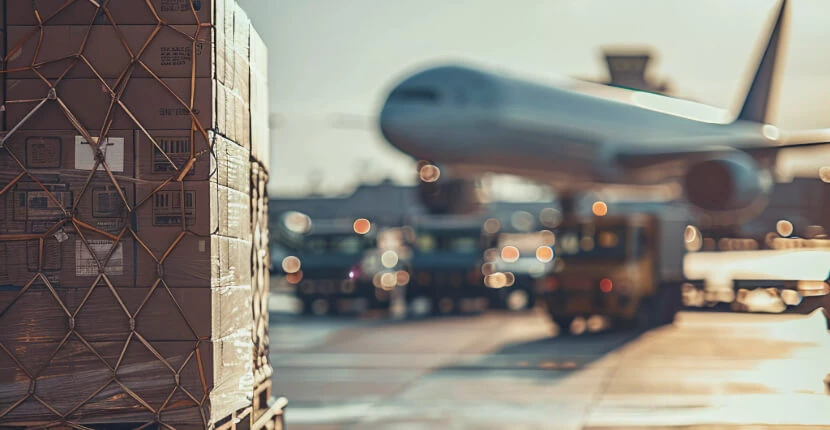
European Cargo Transport
Get in touchAt Freight Forwarding we provide fast, reliable, and cost-effective European cargo transport tailored to businesses of all sizes.
We specialise in road, rail, air, and sea freight, ensuring seamless delivery across all EU and non-EU countries, including the UK, Germany, France, and Switzerland.
Our services cover general freight, perishable goods, hazardous materials, oversized cargo, and high-value shipments, with full customs clearance, tracking, and security solutions.
Whether you need express delivery, full truckload (FTL), or multimodal transport, we optimise routes for efficiency and cost savings.
Request a free, customised quote for your cargo. Contact us now for fast, secure, and compliant European freight solutions.
How Much Does European Cargo Transport Cost?
The cost of European cargo transport is £100 to £5,000+ per shipment, depending on distance, cargo type, weight, volume, and transport method.
Short-haul road freight within Europe starts at £100–£500 for small shipments. Full truckload (FTL) services range from £1,000–£3,000, depending on route and fuel costs.
Air freight costs £3–£7 per kg, making it the most expensive option. Rail and sea freight provide cost-effective alternatives for bulk shipments, pricing based on container size and transit time.
Additional services like express delivery, customs clearance, and insurance can increase the cost.
For an exact price, contact Freight Forwarding today for a free, no-obligation quote.
What Types of Cargo Can Be Transported Across Europe?
European cargo transport supports a wide range of goods, ensuring compliance with regulations and specialised handling requirements. Different transport methods accommodate various cargo types, from general freight to hazardous materials.
General Freight – Consumer goods, textiles, furniture, and packaged products.
Perishable Goods – Food, beverages, pharmaceuticals, and flowers requiring temperature control.
Hazardous Materials (ADR Goods) – Chemicals, flammable liquids, and industrial waste with strict handling regulations.
Oversized and Heavy Cargo – Machinery, construction materials, and vehicles requiring special permits.
High-Value Shipments – Electronics, luxury goods, and jewellery with enhanced security measures.
Bulk and Raw Materials – Coal, minerals, grains, and industrial commodities are transported in bulk containers.
E-commerce and Parcel Shipments – Small packages, retail products, and fulfilment centre deliveries.
Automotive Parts and Vehicles – Engines, spare parts, and fully assembled vehicles are transported via specialised carriers.
Each cargo type requires appropriate packaging, documentation, and transport solutions to ensure safe and efficient delivery.
Which European Countries Do We Ship To and From?
Cargo transport covers all EU and non-EU European countries, including the UK, Germany, France, Italy, Spain, and Poland.
Eastern European destinations such as Romania, Hungary, and Bulgaria are also included. Non-EU destinations like Norway, Switzerland, and Turkey require additional customs procedures.
Transit routes depend on trade agreements, border regulations, and logistics hubs.
What Are the Benefits of Using Our Cargo Transport Services?
Using professional cargo transport services ensures timely deliveries, cost efficiency, and compliance with regulations. Route optimisation reduces transit times and fuel costs.
Secure handling minimises risks for fragile and high-value goods. End-to-end logistics support enhances supply chain reliability, including customs clearance and real-time tracking.
Businesses benefit from flexible solutions, including multimodal transport and express shipping.
How Fast Is Cargo Delivery Across Europe?
Cargo delivery speeds depend on distance, transport mode, and customs processing. Road transport within the EU takes 1–5 days.
Express air freight delivers within 24–48 hours. Rail transport balances speed and cost, taking 3–7 days.
Customs procedures, border checks, and peak season demand affect delivery times. Accurate transit times require route-specific estimates.
What Transport Methods Are Available for European Cargo?
European cargo transport includes road, rail, air, and sea freight. Road transport provides door-to-door service for flexibility.
Rail freight offers cost-effective bulk transport with scheduled departures. Air freight ensures the fastest delivery for urgent shipments.
Sea freight is used for large-volume, non-urgent cargo with lower costs. Multimodal solutions combine different methods to optimise efficiency.
How Do We Ensure the Safety and Security of Your Cargo?
Cargo safety is ensured through secure packaging, real-time tracking, and GPS-monitored transport. High-value goods use tamper-proof seals, CCTV surveillance, and security escorts.
Temperature-sensitive cargo is monitored using refrigerated containers with constant logging. Compliance with ADR (dangerous goods transport) and TAPA (security standards) reduces risks.
Insurance coverage provides financial protection against loss or damage.
Do We Offer Customs Clearance and Documentation Assistance?
Customs clearance services cover import/export declarations, tariff classification, and VAT compliance. Required documents include commercial invoices, packing lists, and certificates of origin.
Automated customs processing speeds up border crossings. Expert assistance reduces the risk of delays due to incorrect documentation. Non-EU shipments require additional permits, duty calculations, and compliance checks.
What Tracking and Support Services Are Available?
Cargo tracking includes GPS monitoring, automated status updates, and estimated arrival times. Customers receive real-time alerts on shipment progress.
Dedicated support teams handle route adjustments, customs issues, and delivery scheduling. 24/7 customer service ensures immediate response to delays or disruptions.
Online portals allow access to documentation, invoices, and proof of delivery.
How to Get a Quote for European Cargo Transport?
Cargo transport quotes require shipment details, including origin, destination, cargo type, weight, and volume.
Customers must specify transport mode, urgency, and additional services needed. Pricing is based on route distance, fuel costs, and seasonal demand.
Quotes are provided through online forms, phone consultations, or email enquiries. Accurate details ensure a precise cost estimate.
